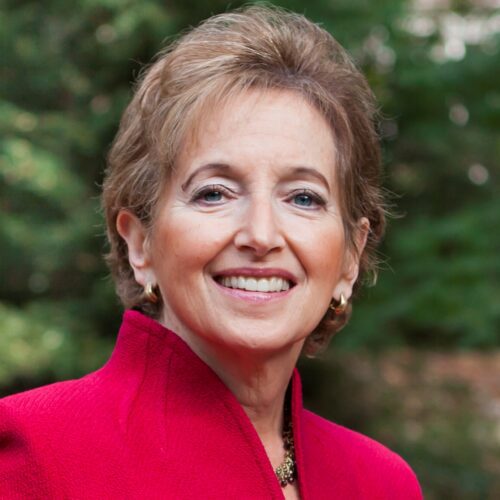Karen Glanz, PhD, MPH, is the George A. Weiss University Professor at the University of Pennsylvania, with appointments in the Perelman School of Medicine and the School of Nursing. Dr. Glanz’s research focuses on translating theory into practice to improve population health, with an emphasis on promoting physical activity, reducing health disparities, and addressing complex issues like food insecurity and obesity.
Dr. Glanz earned her MPH and PhD in Health Behavior and Health Education from the University of Michigan. Over the course of her career, she has led numerous NIH- and CDC-funded studies and co-authored influential publications and resources. She is also the lead editor of Health Behavior: Theory, Research and Practice, a widely used public health textbook now in its sixth edition and translated into multiple languages.
In this Q&A, Dr. Glanz reflects on the impact of community-engaged research, how her work addresses real-world public health challenges, and why she finds connection, mentorship, and lifelong learning so meaningful within the DBEI community.
Can you tell us about your current research and what inspired you to pursue this area?
My major research projects right now focus on implementing strategies to increase physical activities in families; improving physician-patient communication with older cancer patients; and understanding the real-world experience of patients using anti-obesity medications. These studies grew out of previous research and unique collaborations, as well as my long-term interest in engaging with communities and patients.
How does your research intersect with real-world challenges?
The studies mentioned above are all focused on key health risks for longevity and quality of life and functioning. I also collaborate on research to reduce heart disease risk, improve sleep in adolescents, and reduce food insecurity.
What do you find most rewarding about working in the Department of Biostatistics, Epidemiology and Informatics?
There is no one thing that is most rewarding, but our department and the environment surrounding it are full of talented, smart and creative/inquisitive scientists and clinicians who make our research more interesting and impactful.
Can you share a significant recent project, publication, or professional recognition that you are particularly proud of contributing to or achieving?
In the past year, I am most proud of the late 2024 release of the sixth edition of my book – Health Behavior: Theory, Research and Practice (Glanz, Rimer & Viswanath, eds.; Wiley/Jossey-Bass, 1990, 1996, 2002, 2008, 2015, 2024). This book is widely used in training and scholarship and has been translated into Japanese, Korean, and Chinese [legally!] and into a few other languages “off label.” It was the basis for a monograph published by the National Cancer Institute in 2 editions, called Theory at a Glance – that focused on translating theories into a usable format for practitioners. Translating theory and research into practical applications has been a long-time focus of my work and it is rewarding to see that it evolves over time and is still relevant in today’s world. (There is a lot about COVID in the current edition! We never imagined that in 1990….)
What advice would you give to students or early-career professionals in your field?
Find work that you enjoy and be open to growing over time. Learn from and draw inspiration from your peers and mentors. Work hard and, to quote one of my early mentors, publish impactful work and plenty of it.
What is an interest or pastime that you enjoy outside of academia?
I’m an avid triathlete and swimming, biking, and running are a big part of my life. I completed the Kona Ironman World Championship in 2002 and am committed to fitness for the long haul… And I am lucky to have a growing family of 3 grandchildren (and one more to come in July!) and 13 grand-nieces and nephews from my brother’s family. They are the future! (in addition to our students and junior faculty of course)
Is there anything else you would like to add?
I know it takes more effort to connect in person than in the pre-COVID world, but I’d be happy to meet some of our newer faculty if I can be of any help or offer wisdom from a decades-long career.
